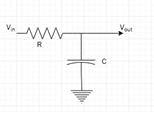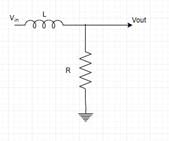Test: RC Filters - GATE MCQ
25 Questions MCQ Test - Test: RC Filters
What is the value of resistor for a high pass RC filter to produce a cutoff frequency of 3.4KHz if C = 0.047μF?
What is the loss the filter introduces to the signals in the passband called?
What are filters created by using resistors and capacitors or inductors and capacitors called?
What type of filter produces a predictable phase shift characteristic in all frequencies?
Find the cut off frequency for an RC low pass filter of R = 8.2Ω and C = 0.0033μF?
What is the value of notch frequency if the values of resistance and capacitance are 100 kV and 0.02 μF?
In a certain parallel resonant band-pass filter, the resonant frequency is 14 kHz. If the bandwidth is 4 kHz, the lower frequency is
Compute the quality factor of the wide band-pass filter with high and low cut-off frequencies equal to 950Hz and 250Hz.
In which filter the output and input voltages are equal in amplitude for all frequencies?
In a first order high pass filter, frequencies higher than low cut-off frequencies are called
Find out the application in which narrow band-reject filter can be used?
If the gain at center frequency is 10, find the quality factor of narrow band-pass filter
The quality factor of passive twin T-network is increased by using






















